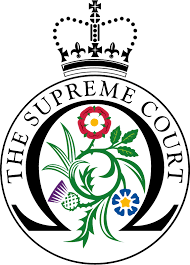UK Supreme Court Redefines Patent Infringement
Aug 11th, 2017 by David Puleo | News | Recent News & Articles |
 Although the focus of most of our pieces has been on U.S. patent law, there is occasion to report on developments of note from abroad. One such patent case decided last month in Great Britain deserves our attention. On July 12th, the United Kingdom Supreme Court (UKSC) redefined patent infringement laws as related to infringement by equivalents, i.e. under what we know here in the U.S. as the “Doctrine of Equivalents”. To elaborate, under this doctrine, a party can be found liable for patent infringement even though the accused item or process does not fall within the literal scope of a patent claim. The current legal test in the U.S. determines whether the difference between the accused item or process and the patent claim is “insubstantial” so that it is equivalent to an invention falling within the scope of the claim. See Warner-Jenkinson Co. v. Hilton Davis Chem. Co. (1997). Although well established in the U.S., the doctrine has been anathema under U.K. law.
Although the focus of most of our pieces has been on U.S. patent law, there is occasion to report on developments of note from abroad. One such patent case decided last month in Great Britain deserves our attention. On July 12th, the United Kingdom Supreme Court (UKSC) redefined patent infringement laws as related to infringement by equivalents, i.e. under what we know here in the U.S. as the “Doctrine of Equivalents”. To elaborate, under this doctrine, a party can be found liable for patent infringement even though the accused item or process does not fall within the literal scope of a patent claim. The current legal test in the U.S. determines whether the difference between the accused item or process and the patent claim is “insubstantial” so that it is equivalent to an invention falling within the scope of the claim. See Warner-Jenkinson Co. v. Hilton Davis Chem. Co. (1997). Although well established in the U.S., the doctrine has been anathema under U.K. law.
In the case of Actavis UK Limited and others v. Eli Lilly and Company ([2017] UKSC 48), Eli Lilly held a patent on pemetrexed disodium salt (marketed as Alimta®) as a lung cancer treatment. However, the generics division of Teva Pharmaceuticals, Actavis Generics, filed patents for different variants of pemetrexed, including pemetrexed diacid, pemetrexed ditromethamine, and pemetrexed dipotassium. Since their variants do not contain disodium ions, as Lilly’s pemetrexed does, Actavis sought declarations of non-infringement for their compounds in the UK, as well as in France, Italy, and Spain.
The UKSC had previously developed a set of questions, known as the Improver/Protocol Questions, which had been used to decide whether infringement had in fact occurred. Based on these Questions, the High Court and Court of Appeal originally ruled that since the Lilly patent specifically claimed the disodium version of pemetrexed, Actavis’ pemetrexed variants did not infringe upon the Lilly patent. However, the UKSC intervened and re-vamped the Improver/Protocol Questions, citing that they only covered the specific claims of a patent and were too narrow in scope. The UKSC also invoked two new questions: (1) does the variant infringe any of the claims as a matter of normal interpretation; and (2), if not, does the variant nonetheless infringe because it varies from the invention in a way or ways which is or are immaterial? If the answer to either question is “yes”, then infringement has occurred. This directly parallels the “insubstantial” standard in the U.S. doctrine.
In the context of the current case, the UKSC cited that although the Lilly patent only claimed pemetrexed disodium, it should also be inclusive of other pemetrexed variants because these variants are obvious to those skilled in the art. Using these new metrics, the UKSC ruled that Actavis did in fact infringe upon the Lilly patent. The UKSC court ruling also applies to Actavis’ patents in France, Italy, and Spain as well. As an aside, the extension of the UK decision to other courts was previously determined in another case. This British ruling and the expanded interpretation by which infringement is interpreted under the Doctrine of Equivalents have vast potential for the future of UK patent protection and litigation.
-David Puleo and Anthony D. Sabatelli, PhD, JD
David Puleo is a Ph.D. Candidate in the Pharmacology Department at Yale University. He is currently involved in two drug discovery projects targeting tyrosine kinases. Prior to attending Yale, David graduated from Boston College with a B.S. in Biochemistry, after which he worked for two years in the Center for Proteomic Chemistry at Novartis Institutes for BioMedical Research in Cambridge, MA.
This article is for informational purposes, is not intended to constitute legal advice, and may be considered advertising under applicable state laws. The opinions expressed in this article are those of the author only and are not necessarily shared by Dilworth IP, its other attorneys, agents, or staff, or its clients.

